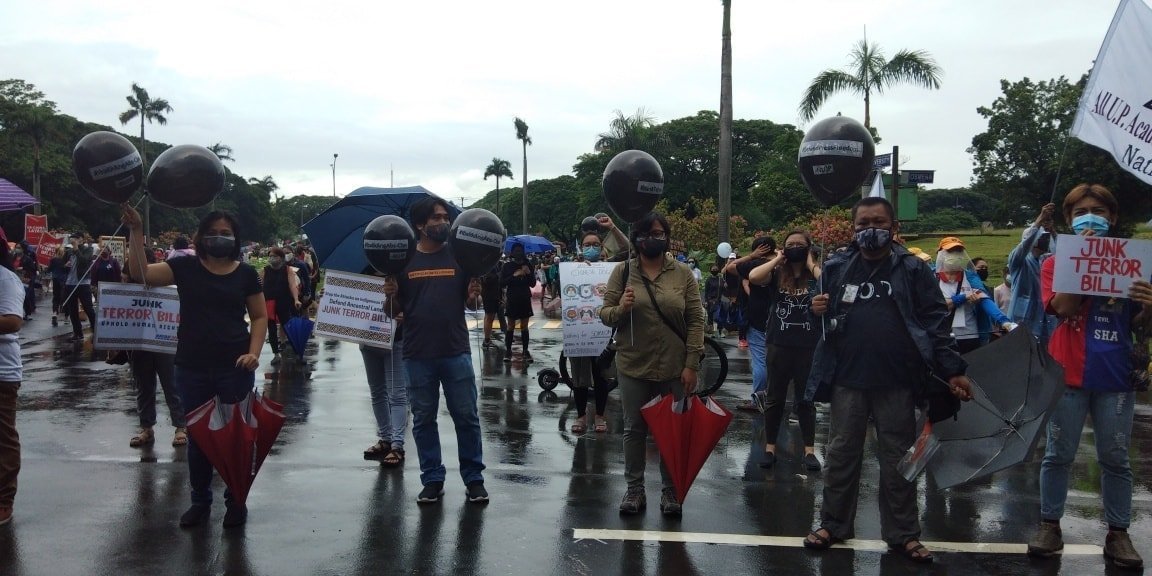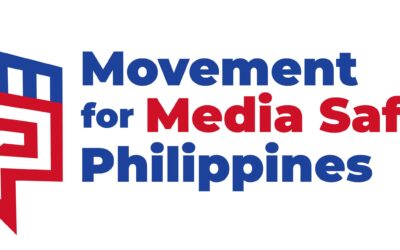Filipino journalists and press freedom advocates reiterate our opposition to the Anti-Terror Act of 2020 as it tramples upon constitutionally-guaranteed rights such as freedom of speech, of expression and of the press.
Section 9 or inciting to terrorism is a new crime under the law. It punishes those who incite others to commit terrorism even “without taking any direct part.” This covers speeches, proclamations, writing, emblems or banners. Under this section, a journalist, an artist of a provocative cartoon or a filmmaker of a political movie can be accused of inciting to violence.
Section 12 punishes providing material support to terrorists, punishable by up to life imprisonment.
Irked by a report on the affidavit of two Aetas charged under the anti-terror law, then National Task Force to End Local Communist Armed Conflict (NTF-ELCAC) Spokesperson Lt. General Antonio Parlade threatened to sue the journalist for “aiding the terrorists by spreading lies.”
One year since the passage of the draconian measure, government officials are still free to threaten journalists with charges for “aiding” terrorists simply by writing and reporting about issues raised by people they have labeled as “enemies of the state.”
Despite pushback from the media community, Parlade has not been held to account for his threats to activists, celebrities and journalists. He has resigned from NTF-ELCAC only after a spat with senators and not for comments that threaten the freedom of the press, the right to know and other fundamental civil liberties.
Using public resources, NTF-ELCAC officials have not stopped peddling lies against journalists. The red-tagging spree has put our colleagues at risk. The arrest and detention of Manila Today editor Lady Ann Salem illustrates the dangers faced by journalists unjustly declared as terrorists or sympathizers of so-called terrorist groups. While Salem has been released from prison, another journalist, Frenchie Mae Cumpio languishes in jail.
Some of our colleagues from the community media have had to relocate due to heavy surveillance by suspected state agents, thus affecting the important work they do during this time of pandemic.
Websites of red-tagged media outlets Bulatlat, Altermidya, Kodao and Northern Dispatch have been receiving digital attacks. Forensic experts have traced the attacks to the Department of Science and Technology (DOST) and the Philippine Army, particularly the intelligence unit.
Beyond the direct attacks on the Philippine media, the Anti-Terror Act’s chilling effect cannot be denied. The law’s vague definition of terrorism essentially makes anyone a suspect. The harsh penalties for those who have not yet been proven guilty of the crime seem like the sword of Damocles hanging over our head.
Still, many Filipino journalists choose to assert press freedom every day. There is no other way but to continue telling the truth. We stand in solidarity with the Filipino people in rejecting a law which intends to criminalize journalism, advocacy and dissent.
Tagapagbalita kami, hindi terorista.




